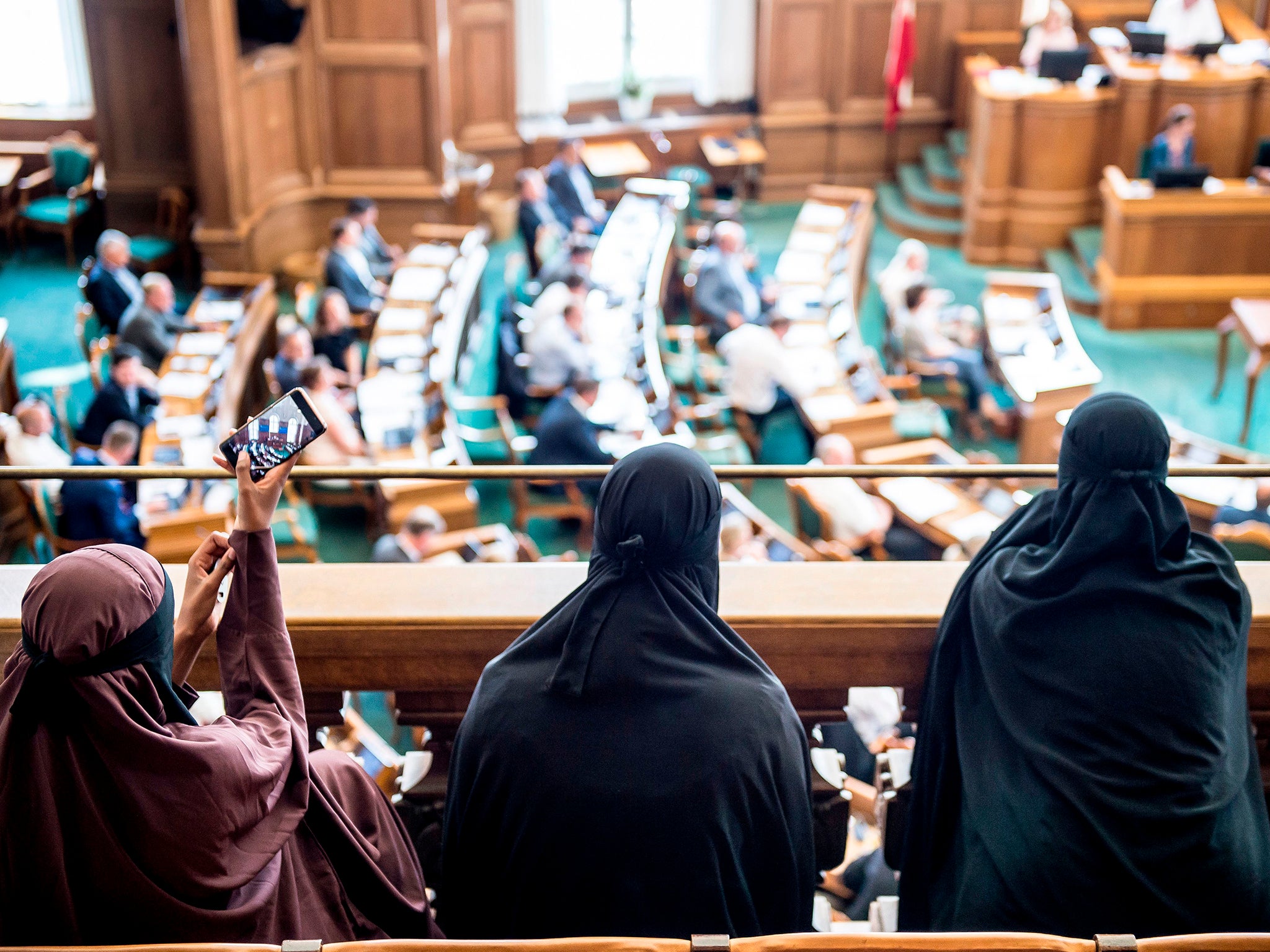Denmark becomes latest European country to ban burqas and niqabs
‘This blanket ban is neither necessary nor proportionate and violates the rights to freedom of expression and religion’

Your support helps us to tell the story
From reproductive rights to climate change to Big Tech, The Independent is on the ground when the story is developing. Whether it's investigating the financials of Elon Musk's pro-Trump PAC or producing our latest documentary, 'The A Word', which shines a light on the American women fighting for reproductive rights, we know how important it is to parse out the facts from the messaging.
At such a critical moment in US history, we need reporters on the ground. Your donation allows us to keep sending journalists to speak to both sides of the story.
The Independent is trusted by Americans across the entire political spectrum. And unlike many other quality news outlets, we choose not to lock Americans out of our reporting and analysis with paywalls. We believe quality journalism should be available to everyone, paid for by those who can afford it.
Your support makes all the difference.Denmark became the latest European country to ban garments that cover the face, including Islamic veils such as the niqab or burqa, after a vote in the country’s parliament. Human rights organisations criticised the move.
MPs in the Scandinavian country approved the bill after it was introduced by the centre-right governing coalition, by a majority of 75 to 30, although 74 abstained.
The government said that the new law, which does not ban headscarves, turbans or the traditional Jewish skull cap, was not aimed at any religion.
However, many see it as directed at the dress worn by some conservative Muslim women, although full face veils are uncommon in the Scandinavian country.
Gauri van Gulik, Amnesty International’s Europe director, criticised the move.
“All women should be free to dress as they please and to wear clothing that expresses their identity or beliefs,” she said. “This ban will have a particularly negative impact on Muslim women who choose to wear the niqab or burqa.
“Whilst some specific restrictions on the wearing of full-face veils for the purposes of public safety may be legitimate, this blanket ban is neither necessary nor proportionate and violates the rights to freedom of expression and religion.
“If the intention of this law was to protect women’s rights, it fails abjectly. Instead, the law criminalises women for their choice of clothing and in so doing flies in the face of those freedoms Denmark purports to uphold.”
However, Denmark’s justice minister Soren Pape Poulsen said that it will be up to police officers to use their “common sense” when they see people violating the law after it goes into force on 1 August.
The law allows people to cover their face when there is a “recognisable purpose” such as in the event of cold weather or in compliance with other legal requirements, such as wearing motorcycle helmets.
First-time offenders risk a fine of 1,000 kroner (£118). Repeat offences could trigger fines of up to 10,000 kroner or a jail sentence of up to six months.
Anyone forcing a person to wear garments covering the face by using force or threats can be fined or face up to two years in prison.
Austria, France and Belgium have similar laws.
The justice ministry and the police now will write more detailed guidelines. Those “should be very concrete” as to what will be banned, said Bjoern Elmquist, a lawyer who has been a prominent opponent of the law.
Louise Holck of the Danish Institute for Human Rights told TV2 television that if the law only focused on women in the niqab or burqa it could amount to discrimination against a minority group and hence be against the law.
Associated Press
Join our commenting forum
Join thought-provoking conversations, follow other Independent readers and see their replies
Comments